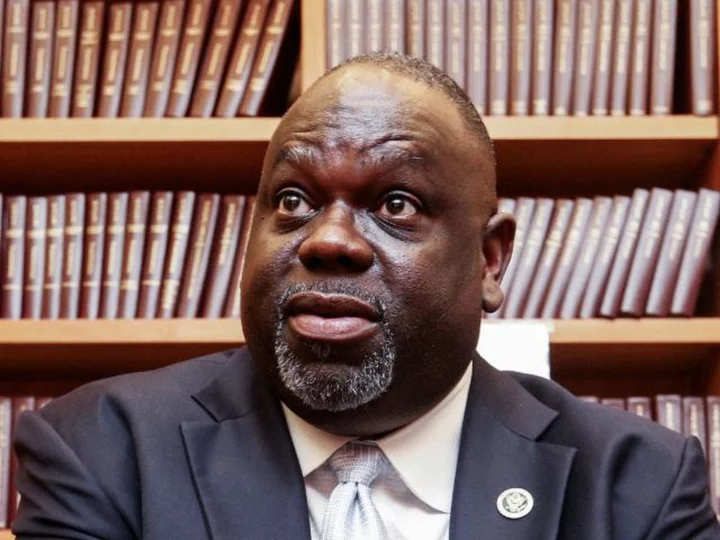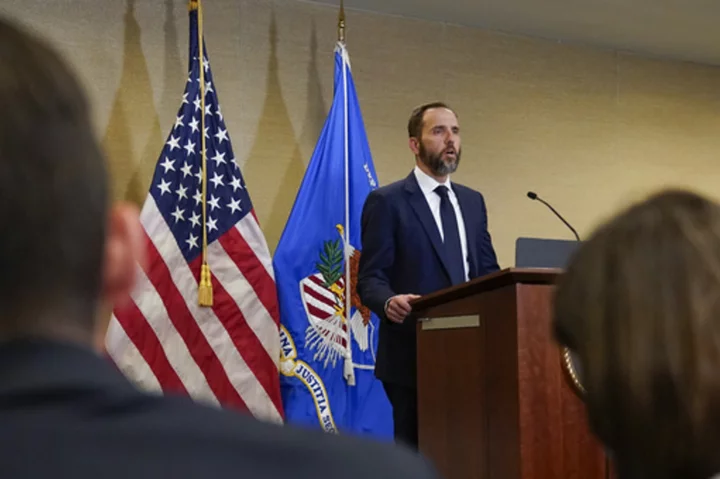A federal judge in Mississippi ruled in favor of a convicted felon in a gun case on Wednesday while simultaneously slamming a recent landmark Second Amendment decision that expanded gun rights and changed the framework lower courts must use as they analyze firearm restrictions.
In his ruling, Judge Carlton Reeves, an Obama appointee who has previously been critical of the Supreme Court decision, dismissed a federal criminal case against a man prosecuted for possessing a firearm despite a past felony conviction prohibiting further gun ownership. The apparent reluctant decision announced by Reeves in his 77-page opinion included a blistering assessment of recent Supreme Court precedent pertaining to guns and public safety.
At issue was a case involving Jessie Bullock, a Mississippi man who was previously imprisoned for approximately 15 years after being convicted for aggravated assault and manslaughter following a bar fight in 1992.
Bullock was indicted 26 years later after being found to be a past felon in possession of a firearm, according to the ruling, but petitioned for his case to be dismissed following a landmark Supreme Court ruling last summer.
That decision, New York State Rifle & Pistol Association v. Bruen, changed the framework judges must use to review gun regulations and determined that modern-day laws restricting gun ownership are only constitutional if similar regulations were in place when the Constitution was drafted.
Going forward, Justice Clarence Thomas said that a gun law could only be justified if it is "consistent with this Nation's historical tradition of firearm regulation."
Last November, Reeves released a scorching order expressing frustration with the high court's new historical legal standard, insisting it had inflicted confusion upon lower courts, and ordered the Justice Department to brief him on whether he needs to appoint an historian to help him decipher the landmark opinion.
"This court is not a trained historian," Reeves wrote last year.
"The justices of the Supreme Court, as distinguished as they may be, are not trained historians," he continued.
"And we are not experts in what white, wealthy and male property owners thought about firearms regulation in 1791," he said.
In response to Reeves' request to the Justice Department for clarity, the Biden administration last year defended a federal statute barring felons from possessing firearms and urged the court not to hire an historian, arguing that the government should win the case without such an intervention.
In his decision Wednesday dismissing the case against Bullock, Reeves acknowledged the government was in the "unenviable position" of pointing to certain past laws barring felons from possessing firearms, but nevertheless ruled that the Justice Department had not met the burden required to show laws barring felons from possessing firearms met the Bruen decision's historical test.
But Reeves repeated his past complaints blasting the entire process courts must now use to determine whether a present-day law had a historical analogue at the time of the founding of the nation.
"Judges are not historians," he once again wrote. "We were not trained as historians. We practiced law, not history. And we do not have historians on staff."
Reeves also appeared to criticize the very notion of deciding modern laws through the lens of colonial times.
"Bruen shows us that originalism is now the Supreme Court's dominant mode of constitutional interpretation," he wrote. "This Court is not so sure it should be."
Reeves added, "This Court is also not sure that ceding this much power to the dead hand of the past is so wise."









